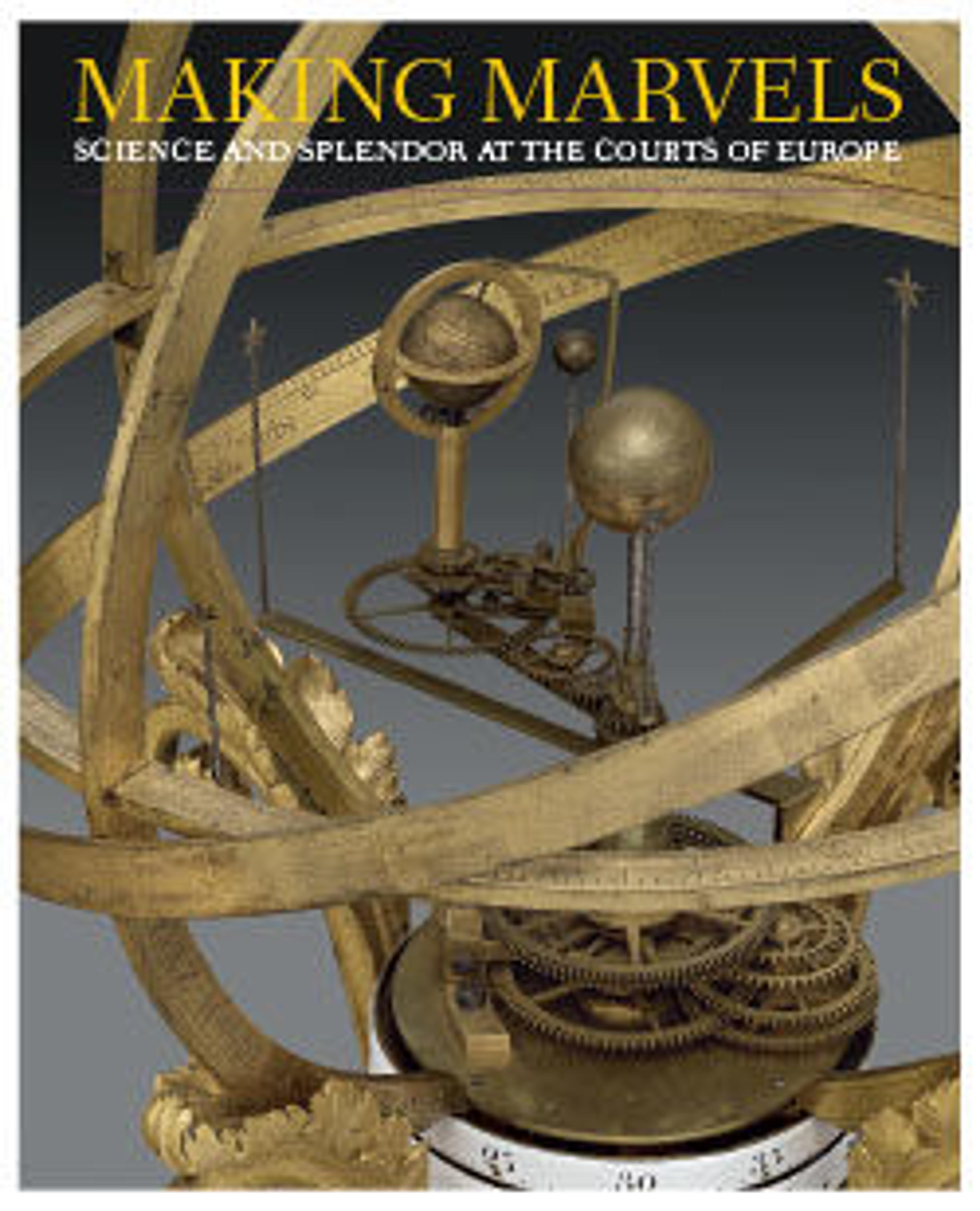English
Kettle Drums
This magnificent pair of royal kettle drums was made for the Hanoverian Life Guards of George III (1738-1820), King of Great Britain and Ireland and Elector of Hanover, whose royal coat-of-arms they bear. These ceremonial instruments would have been played on horseback accompanied by similarly mounted trumpeters leading the royal procession for state events. Sets of silver kettle drums were items made for royals in the seventeenth through nineteenth century as symbols splendor and wealth, but only a handful of sets survive today, as many were melted down for the immense amount of precious material they contained. This is the oldest of several pairs built for English monarchs of the House of Hanover, three later pairs remain in use in London, and a set commissioned by William IV for the Hanoverian Court in the 1830s is at the Museum of Fine Arts, Boston. The original crimson banners that would have been draped around the lower portion of the drums during use also survive.
Artwork Details
- Title: Kettle Drums
- Maker: Franz Peter Bundsen (ca. 1725–1795 (master 1754))
- Date: 1780
- Geography: Hanover, Germany
- Culture: Hanoverian (German)
- Medium: Silver, iron, calfskin, textiles, gilding,
- Dimensions: 2010.138.1: 16 1/2 × 23 × 23 in., 52.9 lb. (41.9 × 58.4 × 58.4 cm, 24 kg)
2010.138.2: 16 3/4 × 24 1/2 × 24 1/2 in. (42.5 × 62.2 × 62.2 cm) - Classification: Membranophone-single-headed / kettle drum
- Credit Line: Purchase, Robert Alonzo Lehman Bequest, Acquisitions Fund, and Frederick M. Lehman Bequest, 2010
- Object Number: 2010.138.1–.4
- Curatorial Department: Musical Instruments
More Artwork
Research Resources
The Met provides unparalleled resources for research and welcomes an international community of students and scholars. The Met's Open Access API is where creators and researchers can connect to the The Met collection. Open Access data and public domain images are available for unrestricted commercial and noncommercial use without permission or fee.
To request images under copyright and other restrictions, please use this Image Request form.
Feedback
We continue to research and examine historical and cultural context for objects in The Met collection. If you have comments or questions about this object record, please contact us using the form below. The Museum looks forward to receiving your comments.
